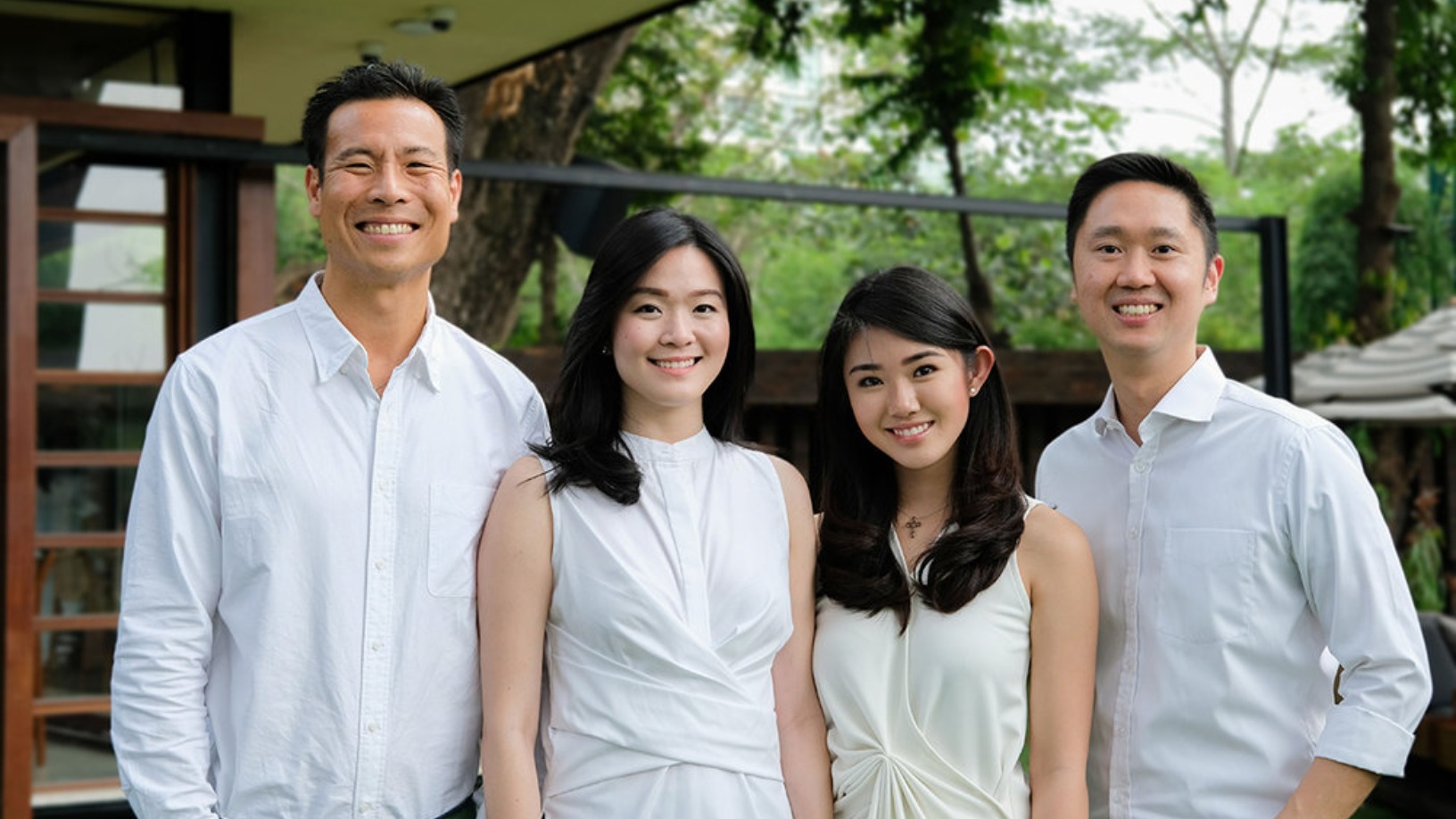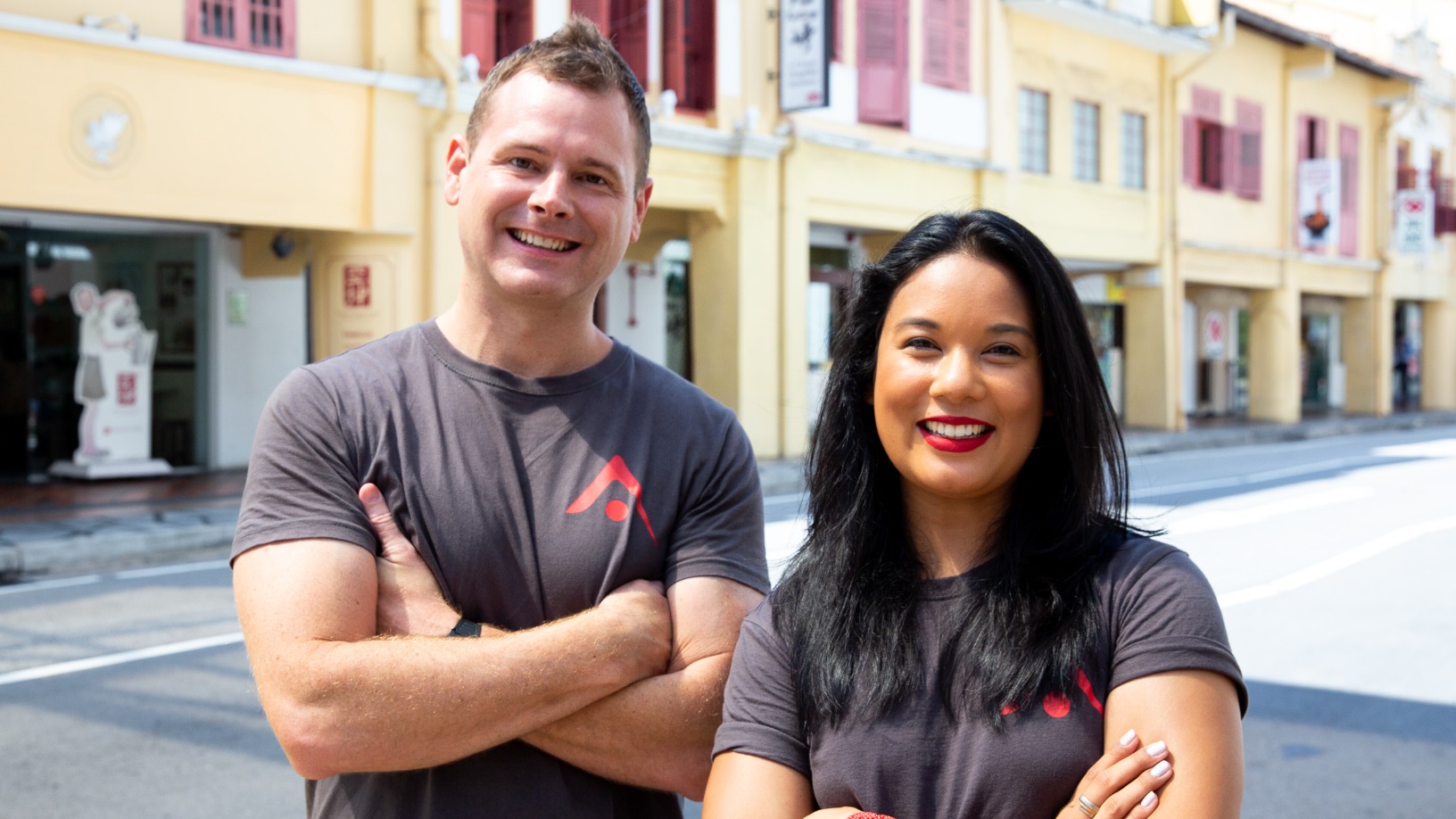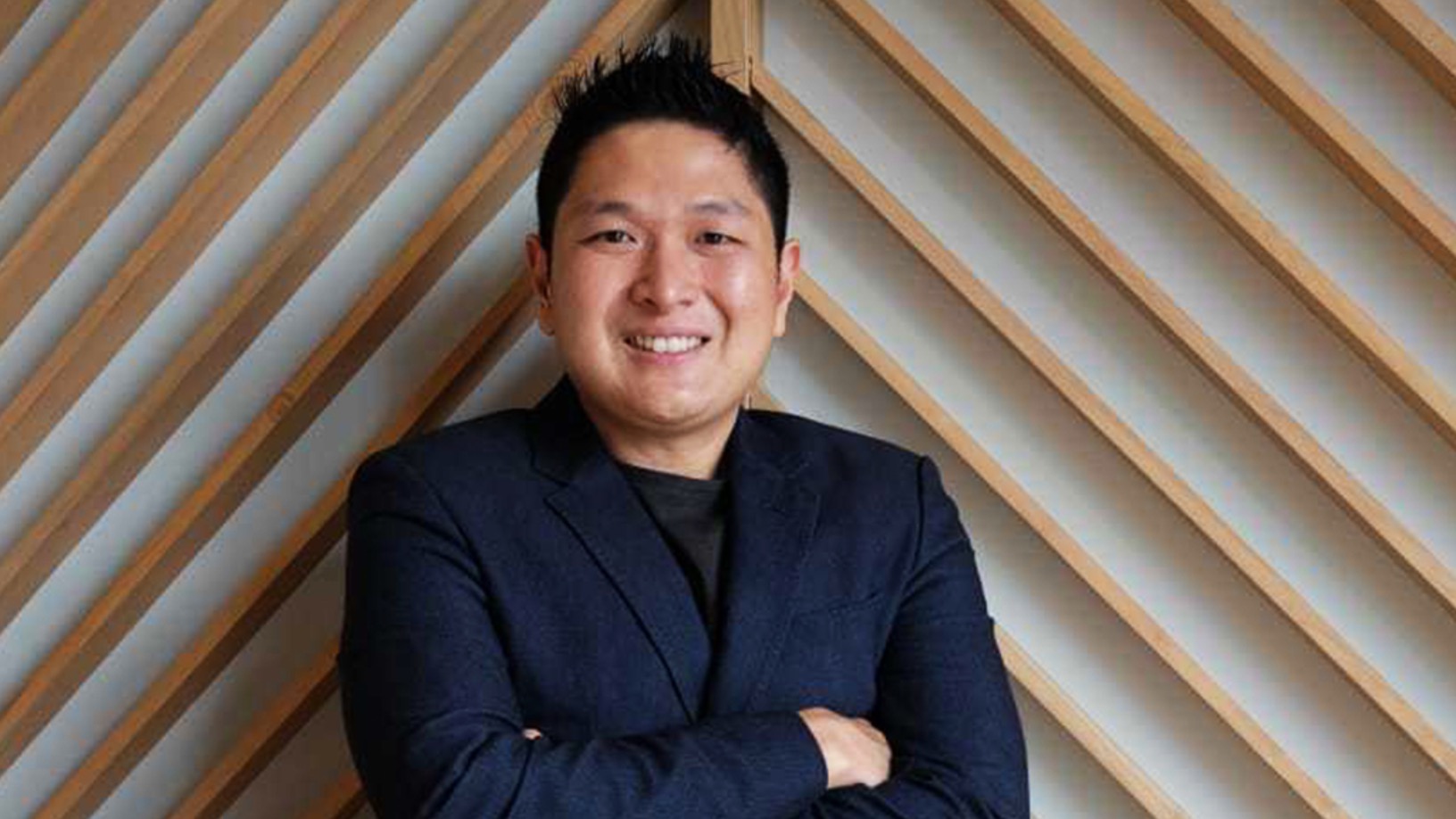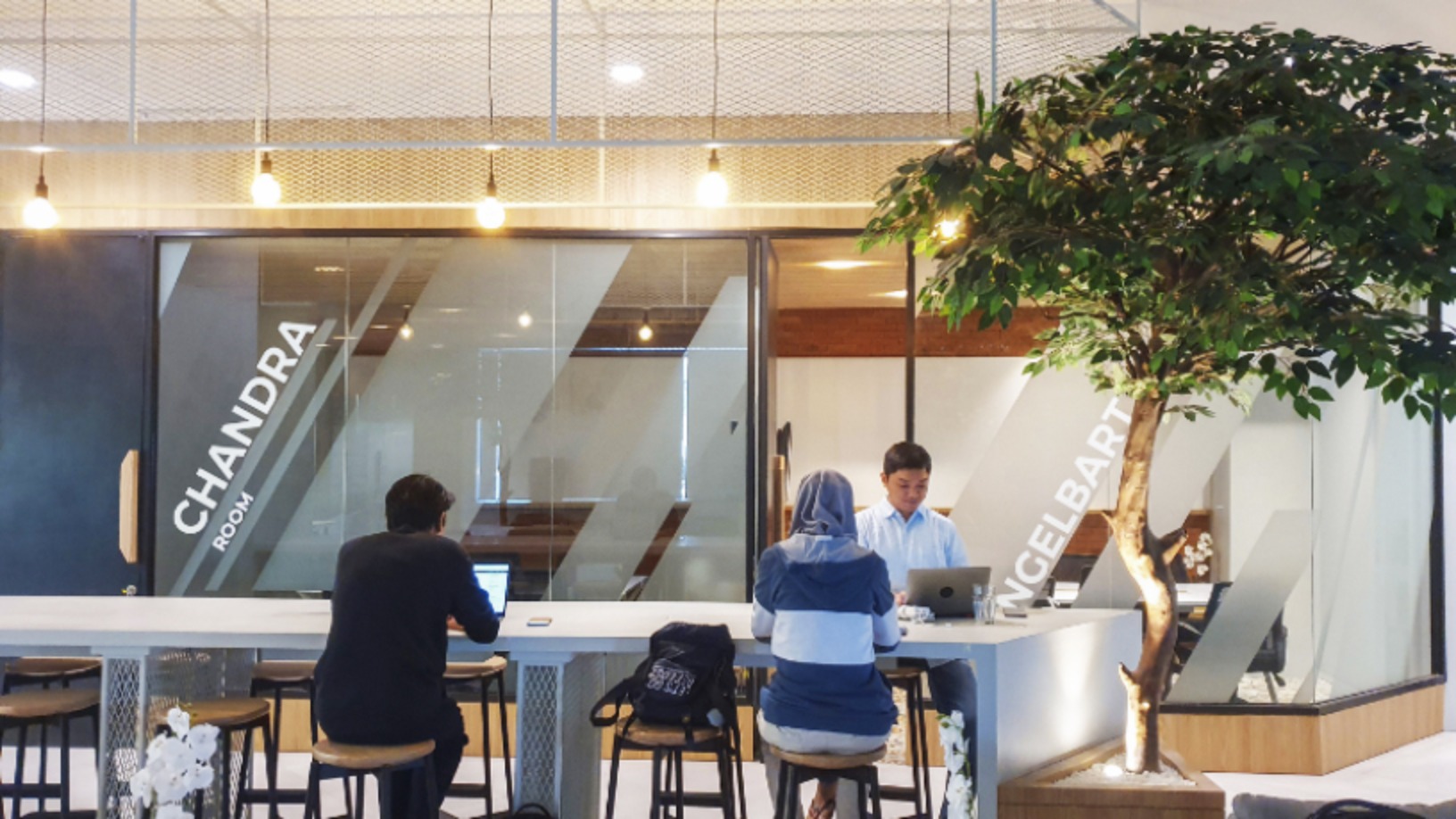The Intudo Ventures website tells you that it’s an “Indonesia-only fund,” investing in companies that operate in Indonesia. Founding Partner Eddy Chan has a more colorful way of putting it: Intudo Ventures is a “nasi goreng-only” fund, referring to Indonesian-style fried rice.
“It’s a one-dish strategy,” Chan told CompassList in an interview. “We don’t have tom yum or pad thai or Vietnamese pho, and we’re not a Southeast Asian buffet.”
With Indonesia contributing nearly half of Southeast Asia’s GDP and population, any prospective regional unicorn would likely want to access its market. For the founders of Intudo Ventures, it makes sense to focus on their home advantage and leverage their local expertise and connections.
“Why fly around the region every other day when you can hunker down and focus your resources where you speak the local language?” Chan said.
Intudo’s nasi goreng, however, has a decidedly American kick. “One in three of our deals is sourced in America,” Chan said. He operates out of Silicon Valley, where he meets prospective Indonesian founders and LPs to bring them back to the country. The VC’s other founding partner, Patrick Yip, holds the fort in Indonesia, working directly with portfolio companies and local LPs.
Intudo calls the foreign-educated founders “sea turtles,” after the slang “haigui” the Chinese created to describe those who return to China after studying or working abroad. Such a way of working has been in place since Intudo started investing, Chan said, but it was only recently formalized into a fellowship program. Earlier this year, the company launched its Intudo Pulkam SEA Turtle Fellowship program, in which imminent returnees get connected with potential co-founders and Intudo portfolio companies looking for new talent.
Intudo has scored some winners since it debuted in 2017. Xendit, founded by UC Berkeley graduates, recently became one of Indonesia’s newest unicorns after a $150m Series C round and being the first Indonesian startup to join Y Combinator. The VC also exited from used car marketplace BeliMobilGue when it got acquired by Naspers-owned e-commerce group OLX.
Its portfolio also includes some well-known companies in the B2C and B2B spaces, such as whole supply-chain agritech startup Tanihub, telehealth rising star Halodoc and big data management service provider Delman.
Getting more money
When Intudo started out, many investors were big on Indonesia as a market, but none invested exclusively in local companies, Chan said. The common approach at the time, rather, was to sell the image of Southeast Asia as one region with massive potential.
“Some investors were lumping together Southeast Asian countries into one region and making an artificially large total addressable market,” he said. He believes this approach makes sense for growth-stage investing, when the startups are expected to be able to reach markets beyond their home country. However, early-stage companies need a lot of investor hand-holding within their own country, hence Intudo prefers to focus on Southeast Asia’s largest market alone.
Investors were lumping together Southeast Asian countries into one region, making an artificially large total addressable market
Intudo’s third and most recent fund closed in September with $115m raised – more than 11 times the size of its 2017 debut fund of $10m. LPs involved in this fund include the family offices of ex-Walgreens CEO Greg Wasson and Singaporean businessman Koh Boon Hwee, as well as Indonesian conglomerates and other global funds. Chan declined to identify the other LPs, but mentioned Peter Thiel’s Founders Fund as one of their previous investors.
Each LP’s contribution is limited to 10% of the fund’s value, a decision that Chan said is important to maintain independence, both for Intudo and its portfolio companies. “Based on founder surveys, we found that taking too much capital from one group or another can stunt their growth. Think of it as picking Alibaba or Tencent in China, or between AT&T and Comcast in the US.”
However, Intudo also relies on its LPs to develop its investment strategy and business networks. Currently, Intudo invests in agriculture, consumer products, education, fintech, healthcare, insurance and logistics.
“The 30 or so conglomerates that invest in us have a lot of influence in these sectors,” Chan said. “If we have good chemistry with the founders we meet, we take them to our LPs and our portfolio startups, run them through the distribution channels we developed and see how they perform.”
Three competitive moats
When selecting which companies to back, Chan says Intudo tends to invest in B2B or B2B2C startups over purely B2C plays. That’s because B2C companies often rely on branding as a competitive advantage — one that is difficult to build and can be easily overtaken by better-funded rivals.
“We’re very skeptical about such capital-driven competitive moats, where it’s a competition of who can raise money faster – and lose money faster,” he said, referring to a concept popularized by Warren Buffett indicating a business's ability to maintain its long-term competitive edge.
When assessing a sector or company, Chan believes that relying too much on total addressable market figures can make it difficult to tease out fake founders and team members who are just following trends and lack independent thinking. Investing in popular sectors also puts Intudo face to face with more competing investors. “It’s a very bad entry point from a valuation perspective,” he said.
Taking too much capital from one group can stunt growth
Intudo portfolio companies, he added, usually have at least one of three competitive moats. The first is regulatory. Companies that operate in a strictly regulated space, such as brokerage or cryptocurrency trading, tend to have fewer competitors and have breathing space to grow. Intudo investee Pintu, for example, is one of the few licensed cryptocurrency exchanges in Indonesia, a country where the number of crypto investors is nearly triple the number of registered stock exchange investors.
The second moat is related to recruiting and retaining talent. “You can’t go to Gojek [Indonesia’s first and biggest unicorn] to work on cryptocurrency and you definitely can’t go there to work on genetics,” Chan said. “You’d go to Pintu to work on cryptocurrency and to Nalagenetics for genetics.” Such niche companies tend to be able to recruit and retain the rare talent they need without having to compete with bigger businesses.
The final moat is operational dependency, which B2B companies can develop by making “sticky” products that clients depend on. “Delman, a data analytics company, has made a product that’s so valuable to our clients. The pricing is good, but more importantly it’s sticky,” Chan said.
Sea turtle ecosystem
Intudo’s choice to work with Indonesian overseas returnees is partly driven by historical developments in other tech hubs, such as Taiwan, South Korea and Israel. “A lot of these ecosystems were heavily influenced by folks who got exposure to Silicon Valley,” Chan said.
A similar trend can be seen in Indonesia as well, with the country’s major startups founded by foreign-educated entrepreneurs. The most example is Nadiem Makarim, co-founder and ex-CEO of Gojek, who went to Harvard Business School (HBS) with Anthony Tan, the founder of Gojek rival Grab. Bukalapak’s three co-founders all graduated from Institut Teknologi Bandung, but ex-president Fajrin Rasyid also went to HBS.
Few Indonesians have worked or studied in the US. Chan believes that only 1,600 Indonesian students go to America annually. However, those that do go tend to have an advantage over their homebound counterparts. Besides the exposure to American entrepreneurial culture and cutting-edge technology, Chan said that many of these returnees have valuable social networks.
“They may be connected to some family-owned conglomerates through their social networks, which can help in the business development side. They are also exposed to more opportunities to find co-founding partners.” In addition, foreign investors are more familiar with US-based educational institutions, he said, which give the founders a boost when raising money.
Local meets global
But being away from Indonesia for too long can leave these returnees out of touch with local developments, Chan said. That’s where they need local partners to tune their business ideas.
“We love to see teams that have returnees as well as folks that have stayed local. The local co-founders have seen the whole ecosystem grow and understand the country dynamics better.”
Intudo’s fellowship program is meant to help returnees reconnect with the Indonesian market, regardless of whether they eventually decide to start their own company or join an Intudo startup. Participants, who are Indonesian students or professionals planning a return to the country within 12 to 15 months after applying, work directly with Intudo’s partners and portfolio companies.
“Some of the participants just want to better understand the market, so we link them up with the CEOs of our portfolio companies. This really helps supplement the talent pool of those companies,” Chan said.
Those who are keen on starting their own companies would also learn from Intudo’s associates, portfolio companies and limited partners about market opportunities, regulatory challenges and potential partnerships.
The program is part of a long-term strategy that Intudo has mastered. “Every single one of our investments started from introductions from our LPs or from the founders in our portfolio, as well as relationships we have built over many years,” Chan said.
“If one day the participants or their friends decide to start their own company, we hope that they’ll reciprocate and we’ll be the first phone call they make.”















